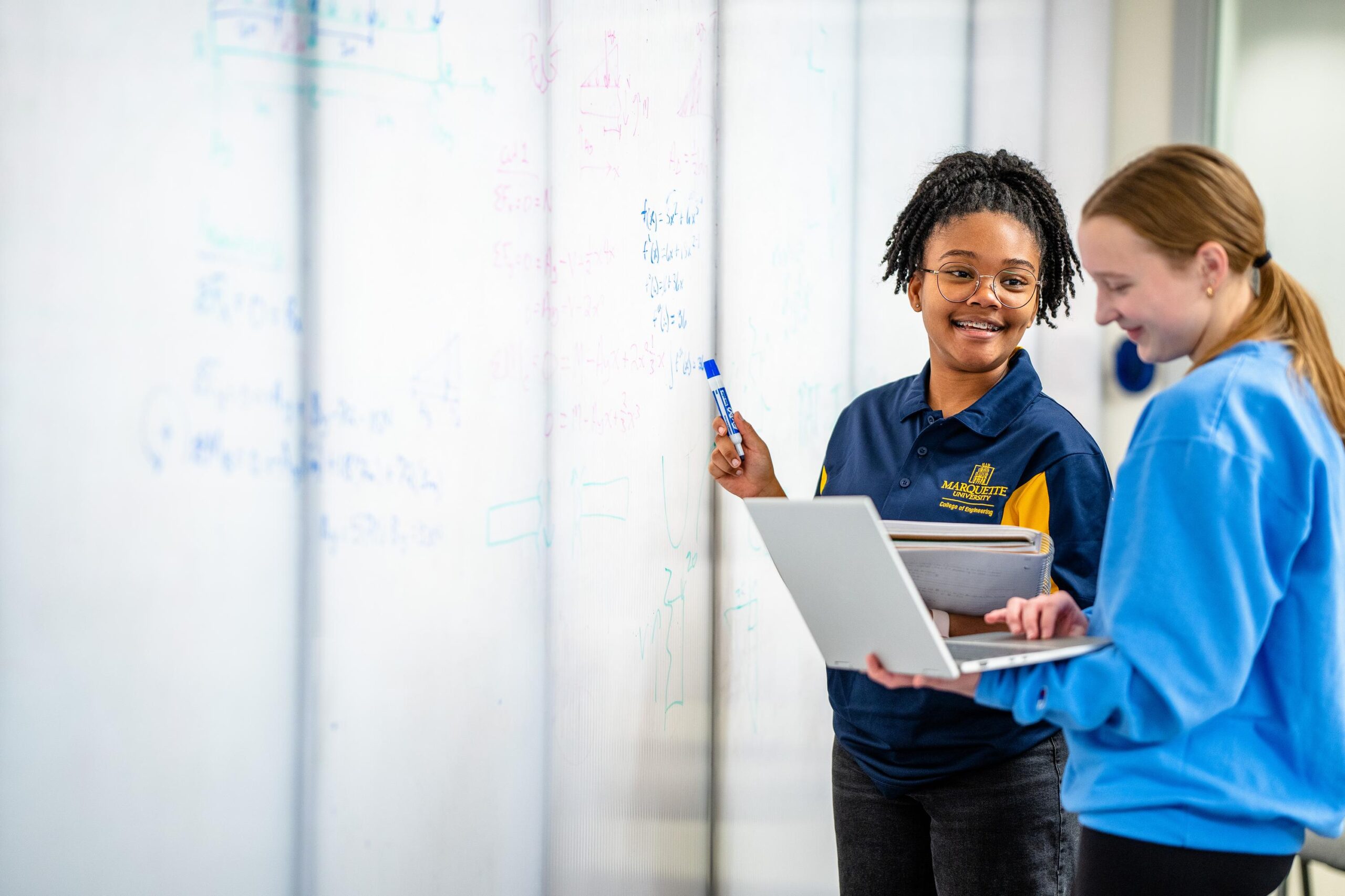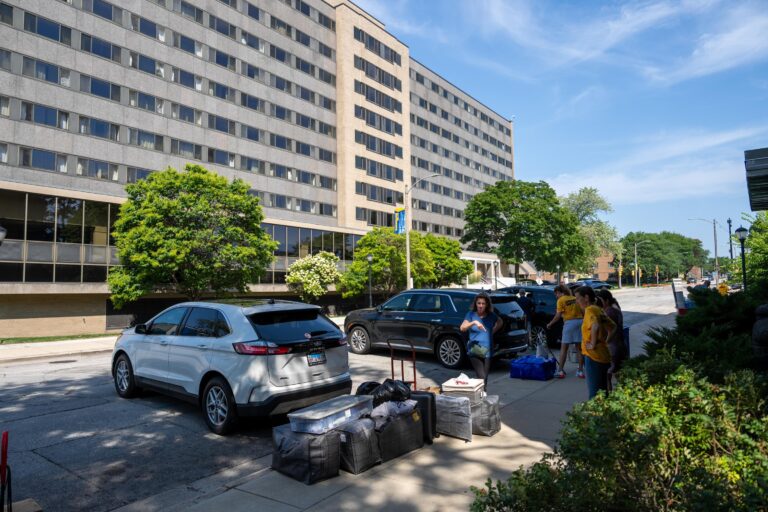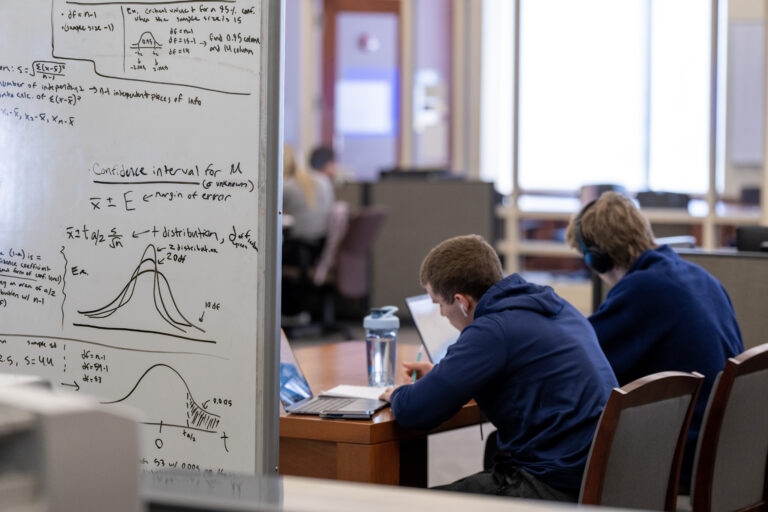Read the emails Brigid Lagerman has received, and you’ll understand the value of Marquette University’s Student Success Initiative.
Lagerman, director of academic advising in the Opus College of Engineering, has seen students struggle through a rigorous curriculum — many getting discouraged, some even walking away to address their mental health.
“In the past, if a student left, it might mean that they never come back,” Lagerman said.
That’s changing, thanks to intentionally constructed support systems implemented within the college over the past decade.
“I’ve gotten cards and emails from people saying, ‘I never would have made it if this wasn’t here’ or things like that,” Lagerman said. “Having that support, it gave them the confidence to come back and get through it.”
President Michael R. Lovell introduced Marquette’s Student Success Initiative in 2021, launching an effort that seeks to better support students at the individual level, increasing retention and graduation rates in the process.
Now the university is set to enhance and scale its efforts with the opening of the Lemonis Center for Student Success later in 2024.
But work that aligns with the Student Success Initiative occurred long before 2021, particularly at the college level. As Marquette begins centralizing support under one roof, this tailored approach remains important to ensuring students not only survive — but also thrive.
“Each college is very different in its needs,” Lagerman said. “The university understands that that’s important and is letting those experts deal with their students in the college. There’s lots of different supports that could be done in a centralized fashion, but still you’ve got a lot of people doing unique and awesome things within every one of the colleges.”
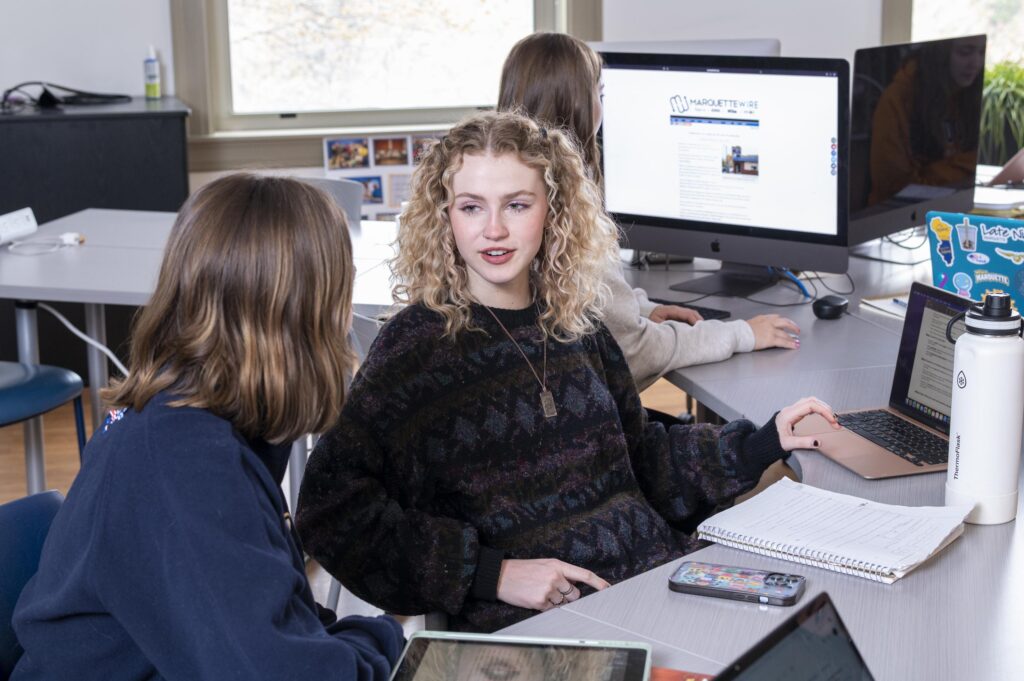
Right from the beginning
Marquette’s Student Success Initiative prioritizes standing by students from “first day until first destination,” says Dr. John Su, vice provost for academic affairs and student success. Students’ first nine weeks on campus are particularly valuable as they search for a sense of belonging.
Dr. Kati Berg, associate dean for academic affairs in the Diederich College of Communication, hopes students start building connections the first time they step on campus.
“We tell students, ‘When you’re here visiting, you should envision yourself in this space,’” Berg says. “You should see yourself working in student media. You should see yourself working in the Carl Collective. And then when they get here, we want them to feel like this is their home, this is their space, these are their people.”
The Diederich student success team, led by Berg, focuses on developing a system where students get the information they need, build connections with others and have at least one faculty or staff member they can go to for help. The strategy aligns well with three core tenets of the Student Success Initiative: communication, community and classroom.
First-year advisers within the Diederich College work to build close relationships in the classroom and through one-on-one meetings. Many visit the “Communication Pathways” intro course, which also hosts communication coaches and peer mentors throughout the semester.
There’s plenty for students to learn outside of their traditional coursework, which the Klingler College of Arts and Sciences reinforces through its “Exploring Arts and Sciences” class.
“The course is really designed to support the initiative by helping our first years uncover the hidden curriculum around belonging, resources, interpersonal skills, intercultural competencies and professional formation,” says Kalyn Gackowski, student success coordinator in the Klingler College of Arts and Sciences.
A team of five professional advisors in arts and sciences works to connect freshmen students to “their person” who can support them in the transition from high school to college and the exploration of majors, careers and opportunities.
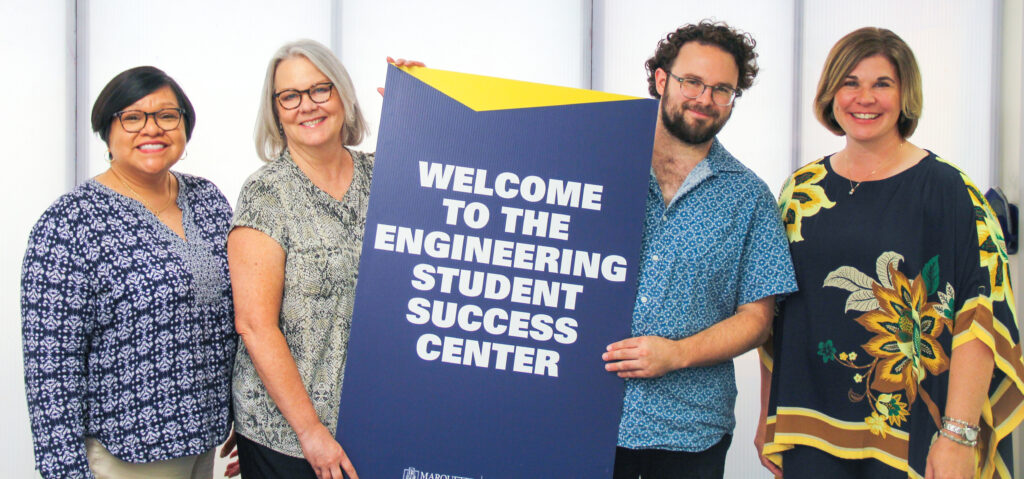
Helping students find their way
After kicking off its student success infrastructure in 2013, the Opus College of Engineering turned its attention to tutoring. Support doesn’t end when students get accustomed to campus, particularly in engineering where specialized attention is required when the curriculum difficulty gets ratcheted up in the middle years.
Backed by a gift, the college established a student success center and an advising center in Olin Hall, areas where faculty, staff and fellow students provide lessons and encouragement.
“All students go to tutoring,” Lagerman said. “High-achieving students go to tutoring to stay where they are. It isn’t just something for people who are struggling. We tell students, ‘No one gets through this program alone.’”
As first-year support calcifies, attention turns to how Marquette can be there throughout all stages of a student’s college career. For communication and arts and sciences, that means connecting students to advisers and mentors are well as internship and networking opportunities.
“That’s the work I’m doing, looking at these high-impact practices,” Gackowski says. “How can we support experiential learning? How do we collaborate more with programs?”
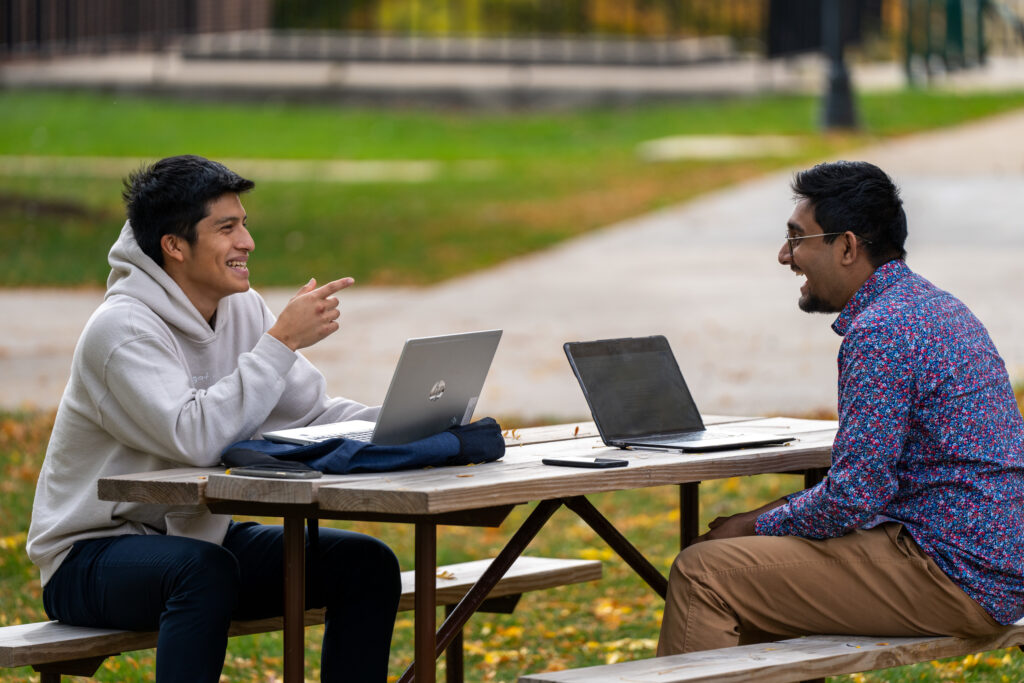
The personal touch
Ultimately, these initiatives are about making sure students know there are people ready to help. After all, just one intervention can change the trajectory of a student’s college career.
“I worked with a student this past fall who was about to drop out from the university,” Gackowski says. “I had her come into my office and said, ‘Tell me your story.’ She talked for 40 minutes; and shared everything going on. After we reflected, I was able to work with her adviser, the department, the college office, to support her finishing her last two classes. I am grateful to be a part of a team that supports students as they work towards graduation and first destination.”
